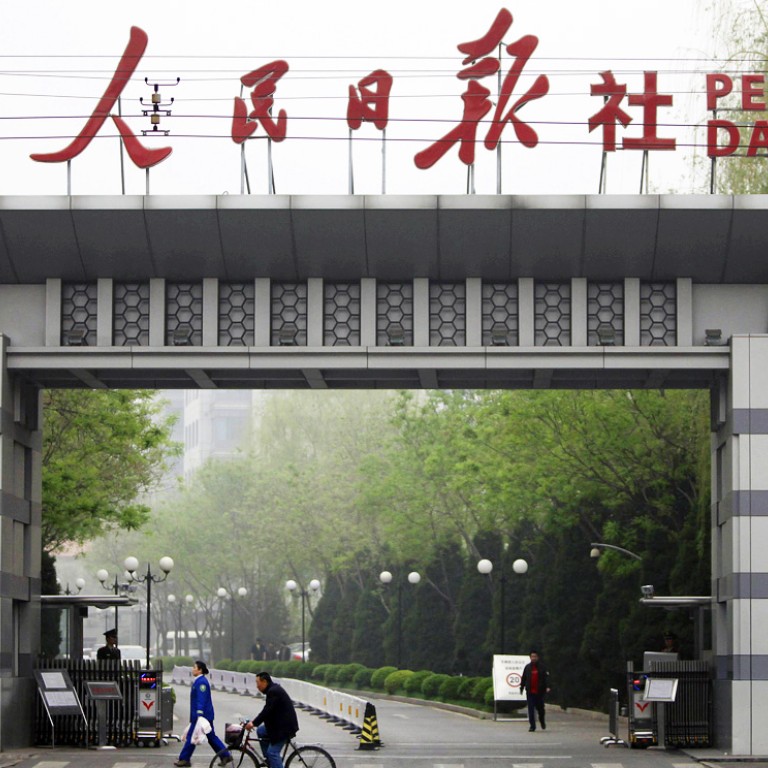
No inch of compromise over Occupy Central in Chinese state media commentaries
Articles in Chinese state media on Wednesday indicate that the Central leadership in Beijing has no intention of considering giving in to the demands by Hong Kong demonstrators and allow genuine universal suffrage in Hong Kong in 2017.
The commentary, which ran on page four, marked the first time the party mouthpiece has commented on the democracy movement.
It suggested that Beijing would not consider revising its decision to pre-select candidates for the chief executive election in 2017, a key demand of the protesters.
On August 31, the Standing Committee of the National People’s Congress said only candidates approved by an election committee could be voted for in the election. The decision ruled out the public nomination of candidates for Hong Kong’s top job.
The commentary argued that the decision was made “in accordance with the real conditions in Hong Kong, in the interest of safeguarding national sovereignty, security, development and to maintain the long-term prospering and stability of Hong Kong”.
The decision had “unshakable legal status and validity”, the unidentified “staff writer” for the People’s Daily argued.
The article also suggested that the democracy movement was bound to fail. “If this extreme minority of people insists on violating the rule of law and stir up trouble, they will in the end up suffering the consequences of their actions,” it read, without elaborating on those consequences.
The commentary, attributed to former Xinhua journalist Ma Xiaolin, compared the movement to Thailand’s Red Shirts movement, the Occupy Wall Street street protests in the US and Ukraine’s revolution.
“They all show that street movements cannot be controlled and that their outcomes are very likely end up being diametrically opposed to their original intent,” Ma wrote. He runs a blogging website that is sympathetic to the central government in Beijing.
Over the past three days, there has been a "near paralyzation" of Chinese media, said David Bandurski, a researcher at the University of Hong Kong's China Media Project.
"While events in Hong Kong have dominated headlines around the world, China has had virtually nothing to say about them aside from a handful of official releases by the government news agency - characterising peaceful protests by Hong Kong citizens as destructive, destabilising and illegal," he said.
"Looking at coverage today, I think criticism of the protests by Chinese state media has taken on a nastier tone," said Bandurski.
It echoed other pro-Beijing editorials in saying that the protests had been orchestrated by a small minority of the population that is stirring up public sentiment.
“Don’t believe those making noise falsely claiming to act for Hong Kong’s future destiny – on the contrary,” it read.
“They in their core don’t consider Hong Kong’s future or the interests of Hong Kong’s population, but their own interests,” the commentary read.
The Guangming Daily article is devoid of facts and ideas with which Hong Kong people might identify, said Bandurski. "The crude and bullying nature of such statements suggests a complete unwillingness by China's leadership to come to terms with Hong Kong society and its aspirations," he said.

